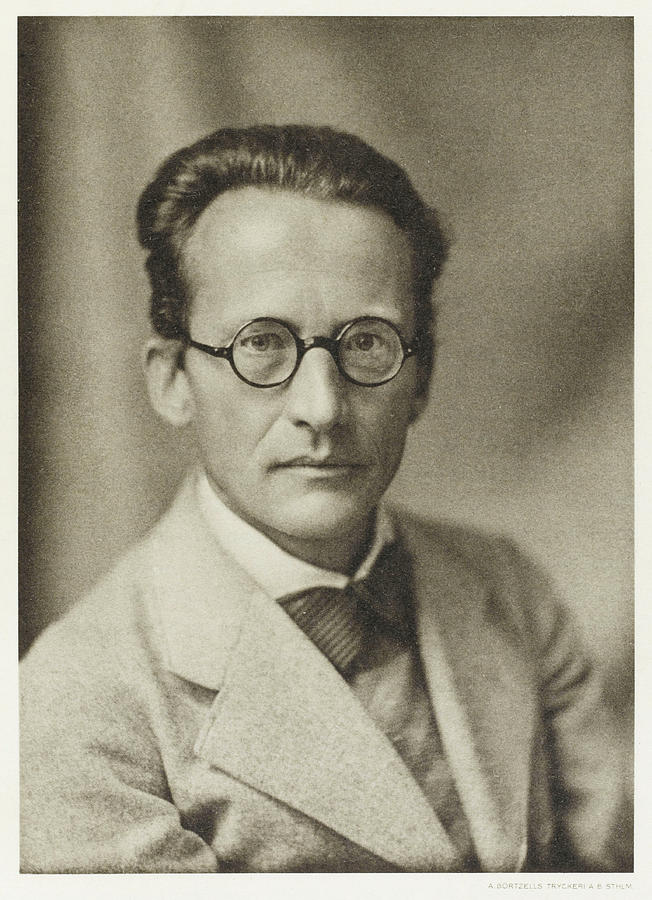Эрвин Шрёдингер знаменитые цитаты
«Природа и греки »
«Мой взгляд на мир»
«Автобиография»
Источник: Цит. по: Д. Хоффман. Эрвин Шрёдингер. — М.: Мир, 1987. — С. 78—85.
Эрвин Шрёдингер: Цитаты на английском языке
"Seek for the Road" (1925)
Контексте: For thousands of years men have striven and suffered and begotten and women have brought forth in pain. A hundred years ago, perhaps, another man sat on this spot; like you he gazed with awe and yearning in his heart at the dying light on the glaciers. Like you he was begotten of man and born of woman. He felt pain and brief joy as you do. Was he someone else? Was it not you yourself? What is this Self of yours? What was the necessary condition for making the thing conceived this time into you, just you and not someone else?
"The I That Is God" as translated in Quantum Questions: Mystical Writings of the World's Great Physicists (1984) edited by Ken Wilber
Контексте: In itself, the insight is not new. The earliest records, to my knowledge, date back some 2500 years or more... the recognition ATMAN = BRAHMAN (the personal self equals the omnipresent, all-comprehending eternal self) was in Indian thought considered, far from being blasphemous, to represent the quintessence of deepest insight into the happenings of the world. The striving of all the scholars of Vedanta was after having learnt to pronounce with their lips, really assimilate in their minds this grandest of all thoughts.
Again, the mystics of many centuries, independently, yet in perfect harmony with each other (somewhat like the particles in an ideal gas) have described, each of them, the unique experience of his or her life in terms that can be condensed in the phrase: DEUS FACTUS SUM (I have become God).
To Western ideology, the thought has remained a stranger... in spite of those true lovers who, as they look into each other's eyes, become aware that their thought and their joy are numerically one, not merely similar or identical...
Mind and Matter (1958)
Контексте: To my view the ‘statistical theory of time’ has an even stronger bearing on the philosophy of time than the theory of relativity. The latter, however revolutionary, leaves untouched the undirectional flow of time, which it presupposes, while the statistical theory constructs it from the order of events. This means a liberation from the tyranny of old Chronos. What we in our minds construct ourselves cannot, so I feel, have dictatorial power over our mind, neither the power of bringing it to the fore nor the power of annihilating it. But some of you, I am sure, will call this mysticism. So with all due acknowledgement to the fact that physical theory is at all times relative, in that it depends on certain basic assumptions, we may, or so I believe, assert that physical theory in its present stage strongly suggests the indestructibility of Mind by Time.
“The observing mind is not a physical system, it cannot interact with any physical system.”
Nature and the Greeks (1954)
Контексте: The observing mind is not a physical system, it cannot interact with any physical system. And it might be better to reserve the term "subject" for the observing mind. … For the subject, if anything, is the thing that senses and thinks. Sensations and thoughts do not belong to the "world of energy."
“In physics we have dealt hitherto only with periodic crystals.”
To a humble physicist's mind, these are very interesting and complicated objects; they constitute one of the most fascinating and complex material structures by which inanimate nature puzzles his wits. Yet, compared with the aperiodic crystal, they are rather plain and dull. The difference in structure is of the same kind as that between an ordinary wallpaper in which the same pattern is repeated again and again in regular periodicity and a masterpiece of embroidery, say a Raphael tapestry, which shows no dull repetition, but an elaborate, coherent, meaningful design traced by the great master.
What Is Life? (1944)
Источник: A Life of Erwin Schrödinger
Источник: My View of the World (1951), p. 33
Источник: My View of the World (1951), p. 10
Источник: My View of the World (1951), Chapter 4
Источник: My View of the World (1951), Chapter 5
Science and Humanism (1951)
Nature and the Greeks (1954)
Science and Humanism (1951)
“The laws of physics and chemistry are statistical throughout.”
What Is Life? (1944)
As quoted in Schrödinger: Life and Thought (1989) by Walter Moore
Источник: My View of the World (1951), pp. vii-viii
“I insist upon the view that 'all is waves.”
Letter to John Lighton Synge (9 November 1959), as quoted by Walter Moore in Schrödinger: Life and Thought (1989) ISBN 0521437679
As quoted in Problems of Life (1952), by Ludwig von Bertalanffy, as reported in A Dictionary of Scientific Quotations (1991) edited by Alan L. Mackay, p. 219
On the conditions of the "Schrödinger's cat" thought-experiment, as presented in The Present Situation in Quantum Mechanics (1935), translated by John D. Trimmer http://www.tu-harburg.de/rzt/rzt/it/QM/cat.html
